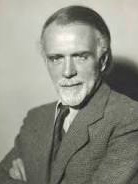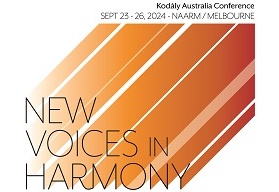Zoltán Kodály
 Zoltan Kodály was a prominent Hungarian composer, educator, ethnomusicologist, linguist, author and philosopher. Along with Bartók and Ligeti, he is one of the three major figures in Hungarian music this century.
Zoltan Kodály was a prominent Hungarian composer, educator, ethnomusicologist, linguist, author and philosopher. Along with Bartók and Ligeti, he is one of the three major figures in Hungarian music this century.
Kodály’s many compositions show a strong affinity with the folk traditions of his country and include ballad operas, orchestral works, chamber music, choral works, songs, folk song arrangements and music for children. Kodály was born on December 16, 1882 in Kecskemét, a small town in central Hungary. Much of his childhood was spent in the Hungarian villages. It was here that Kodály developed a great love for the Hungarian countryside and for the folk traditions of his culture.
From a young age Kodály showed great aptitude and interest in music. His father, an amateur musician, encouraged this interest, particularly the young boy’s interest in composition. By the time Kodály reached secondary school he was composing his own music. After completing his school education, Kodály studied at The Franz Liszt Academy (Hungary’s most prestigious music institution) and the University of Hungary where he earned a degree in Hungarian, German and then, later, a Doctor of Philosophy in linguistics.
As a composer, Kodály did much to bridge the gap between Hungarian folk music and the European art music tradition. The political climate of Hungary during the 1900’s was such that it had strong economic ties with Austria. The music of the Hungarian upper class was Viennese Classical music and the language spoken by educated Hungarians was German. The peasant population, on the other hand, spoke Hungarian and had a thriving folk music tradition of its own. Yet this distinctly Hungarian music was not regarded highly by both professional musicians and the upper class that made up the concert audiences.
In the early 1900’s, Kodály and his colleague, Béla Bartók turned their backs on the European music culture of Hungary and focused their attention on their own native folk music traditions. In 1905 they set off on the first of many expeditions to collect and gather traditional Hungarian folk music. Within a year they had arranged and published a collection of twenty folk songs.
Kodaly’s work was not immediately accepted by ” the establishment” who regarded this folk music to be uncultured, and unrefined. Yet, undeterred, Kodaly went on many more expeditions to collect and transcribe folk music. In a number of his compositions he began to incorporate actual folk melodies that he had gathered. In 1921 and 1937, Kodály and Bartók published two significant books on the subject of Hungarian folk music. The quality and scholarship of these works caused them to receive worldwide recognition in the field of ethnomusicology.
In later years Kodály was president of the Hungarian Academy of Sciences, president of The International Folk Music Council, and honorary president of the International Society for Music Education. In addition to his more than busy schedule, Kodály spent a lot of time visiting schools and talking to music educators. He was actively involved in the development and refinement of music textbooks and other materials for use in the classroom. On the day he died, March 6, 1967 he was to carry out one of his many school visits.
The Kodály Concept
Latest News
Research Invitation: Teacher Growth and Development from Australian Kodály Certificate Courses
Kodály Australia is pleased to support the research project, Teacher Growth and Development from Australian Kodály Certificate Courses, conducted by Dr Jason Goopy (chief investigator) and Jason Boron at Edith Cowan University. This study aims to investigate teachers’ motivation to …
Read more
2024 Awards for Excellence in Kodály-Inspired Music Education
This is a reminder that nominations for the 2024 Awards for Excellence in Australian Kodály-inspired Music Education close this Sunday, 31 March 2024. I believe wholeheartedly that our members are the strength of our community. These awards provide a significant …
Read more
IKS Scholarship
The International Kodály Society (IKS) offers fee waiver scholarships to support participation in Kodály-inspired professional development. The closing date for the next round is 1 May 2024. Full information including selection criteria and eligibility is available on the IKS website. …
Read more
Membership Database Upgrade – Complete
Kodály Australia has now completed upgrading our membership database to our new GameDay service. All members will receive a reminder via email to renew their membership one month prior to their renewal date. Members can renew their membership online and …
Read more
Membership Database Upgrade
Over the coming week, the Kodály Australia membership database will be upgraded from our GameDay Classic system to the new GameDay service. This upgrade is necessary as GameDay Classic will shortly be decommissioned by our provider, StackSports. What does this mean for Kodály Australia members? Online …
Read more



